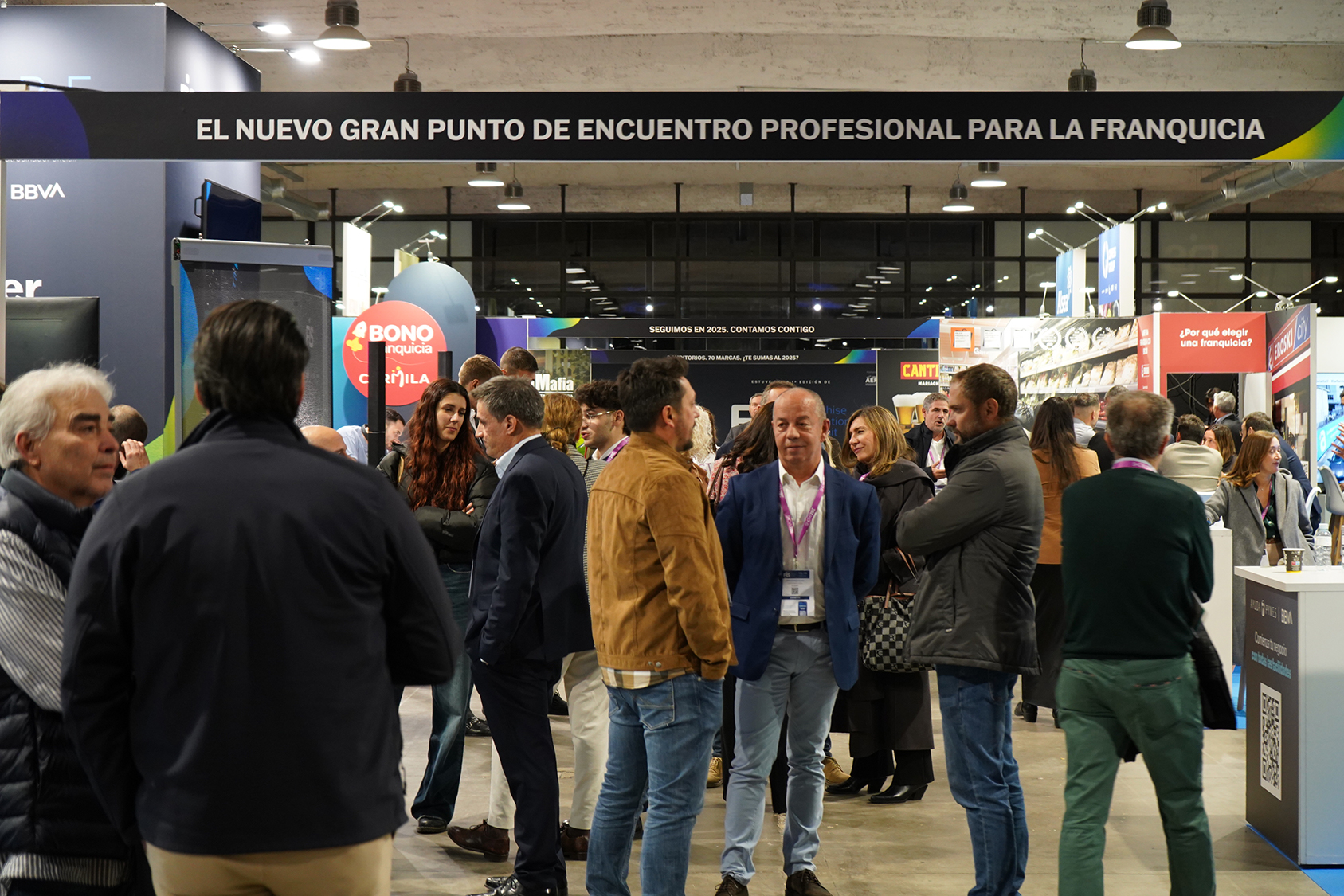"Fitness in Expansion": A snapshot of the sector through the voices of its protagonists
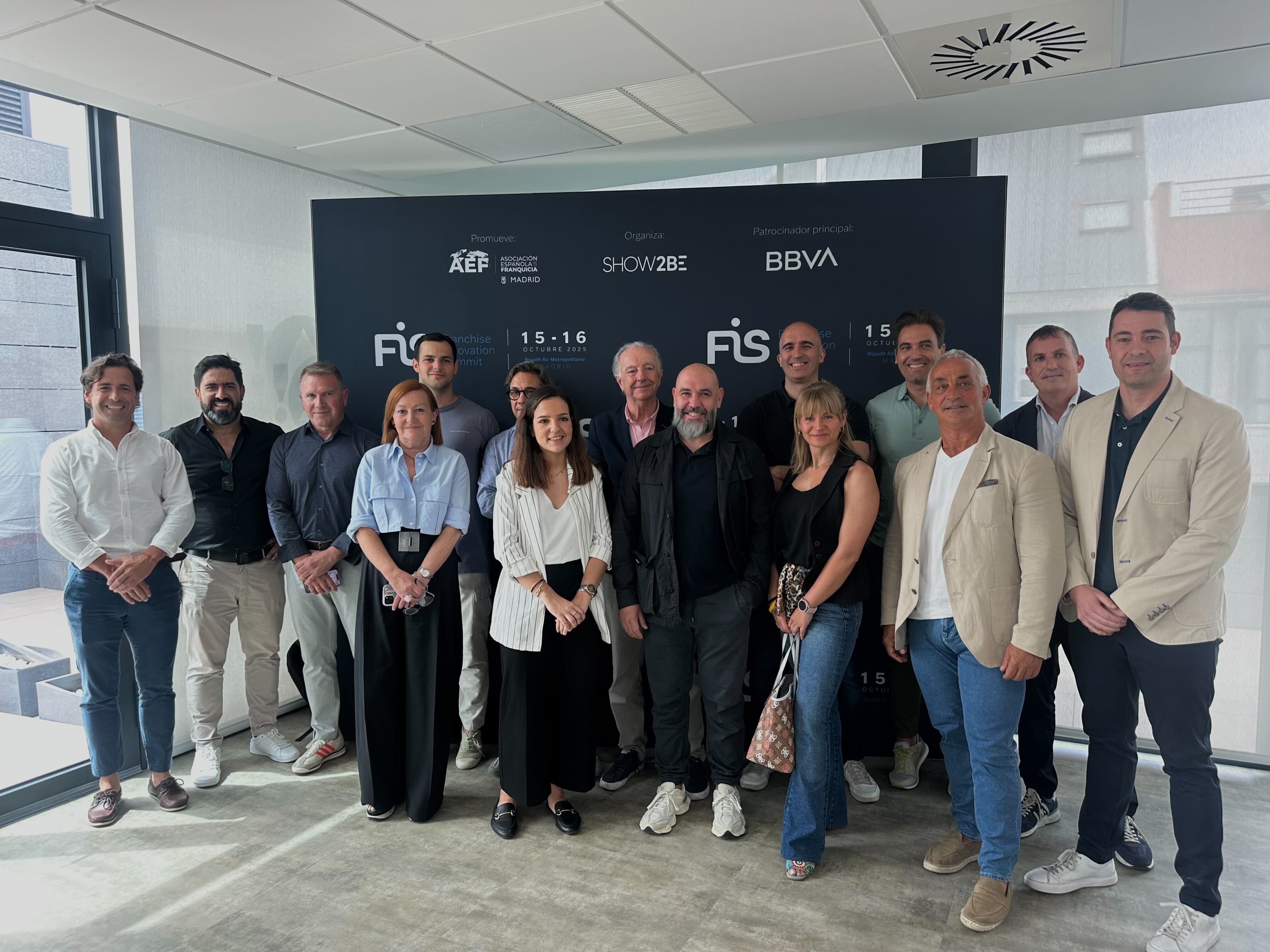
Madrid, June 19, 2025
On June 19, the Franchise Innovation Summit (FIS), in collaboration with the Spanish Franchise Association (AEF), held the professional conference "Fitness in Expansion: Trends, Challenges, and Opportunities of the Franchise Model" in Madrid. A meeting that brought together representatives from ten leading brands in the fitness sector to share strategic vision, identify opportunities, and address the challenges of growth in franchising.
Moderated by Manel Valcarce, managing director of the consulting firm Valgo, the discussion provided a firsthand insight into how the franchise model is evolving in one of the sectors with the greatest growth in terms of the number of establishments in Spain.
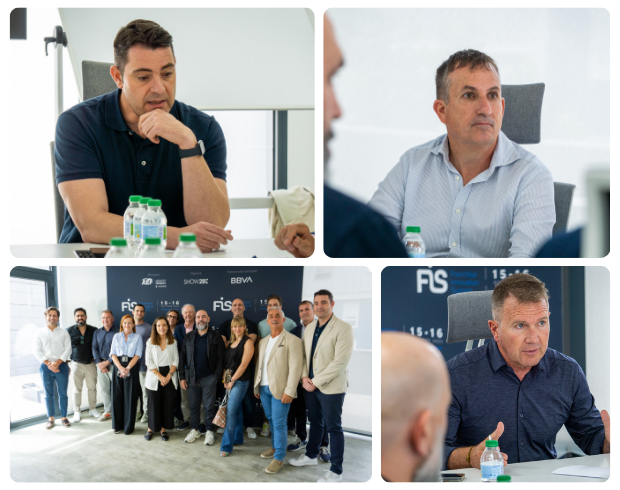 Photo caption: From left to right and top to bottom: Manel Valcarce,
managing director of the consulting firm Valgo; José Nercellas, CEO of L'Orange Bleue;
family photo with attendees; and Felipe Pascual, CEO of Sano Center.
Photo caption: From left to right and top to bottom: Manel Valcarce,
managing director of the consulting firm Valgo; José Nercellas, CEO of L'Orange Bleue;
family photo with attendees; and Felipe Pascual, CEO of Sano Center.
Training as a Differentiating Value
Among the most notable interventions, José Nercellas, CEO of L'Orange Bleue, explained that his network is already number two in France in terms of number of clubs, with the majority under brand licensing, and plans to open between 40 and 45 centers by 2025. He underscored the strategic interest in the Spanish market, where they already have their own and licensed centers, and highlighted the differential value of their training campus, which annually trains more than 1,000 future coaches, with a diploma approved by the French government, as well as their focus on directed classes.
Age segmentation: the success of hyperspecialization
From Sano Center, CEO Felipe Pascual shared the brand's evolution from its first franchise in 2015 to its current 73 centers. He explained that Sano Center has redefined its focus on a 40+ audience, developing the Good Life concept, centered on health, longevity, and well-being. "Sano has learned what it wants to be when it grows up," he noted, and defended the model's resilience as one of its main strengths: "If we have enough persistence, we'll get there."
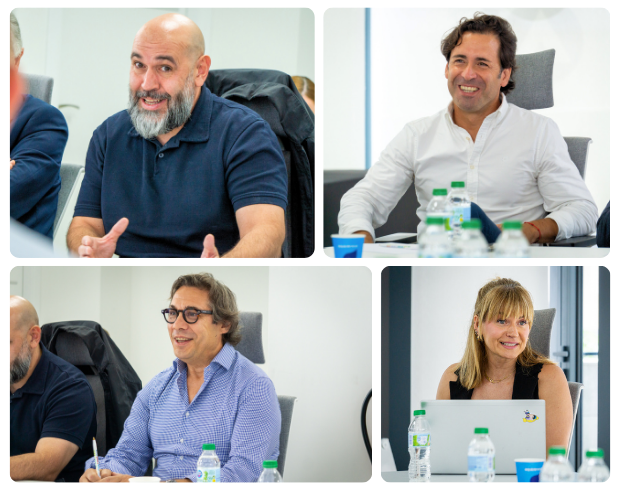 Photo caption: From left to right and top to bottom: David Estébanez,
director of expansion at Distrito Estudio; Álvaro Bachiller, founding partner
of Fenómeno & Company; Juan Carlos Hurtado, CEO of QOMBO Pilates; and Mery Macarro,
area manager of QOMBO Pilates.
Photo caption: From left to right and top to bottom: David Estébanez,
director of expansion at Distrito Estudio; Álvaro Bachiller, founding partner
of Fenómeno & Company; Juan Carlos Hurtado, CEO of QOMBO Pilates; and Mery Macarro,
area manager of QOMBO Pilates.
Taking care of the franchisee and building community
David Estébanez, director of expansion and development at Distrito Estudio, revealed that 50% of its current 18 centers are owned and that its model is based on a franchisee investor who is not involved in management. "We take care of every operational detail so that the franchisee trusts the brand and delegates 100%," he stated, referring to its boutique approach specializing in functional training. Distrito Estudio also stands out for having an events department, whose purpose is to create community, build a team, and be able to offer personalized service in its boutique centers.
Álvaro Bachiller, founding partner of Fenómeno and Company, explained how they went from a research project to opening 15 centers in two years, focusing on a vision that integrates training, physical therapy, and medical prescription. Without capital to scale organically, the entry of investors allowed them to structure their franchise network. Today, they are even collaborating with operators in the franchise sector, forging hybrid paths between fitness and health services.
In the case of QOMBO Pilates, its CEO, Juan Carlos Hurtado, explained his vision of progressive growth, based in Madrid and with a very defined focus: "We want to bring Pilates to areas where it hasn't reached, with an affordable average price and a clear differentiation proposition." His colleague, Mery Macarro, area manager of the firm, added: "We have been in the sector for 20 years and now we are looking to integrate processes, recruitment, and training into new franchisees to accelerate their success." Among the specific features that set them apart is the development of their own Pilates machines.
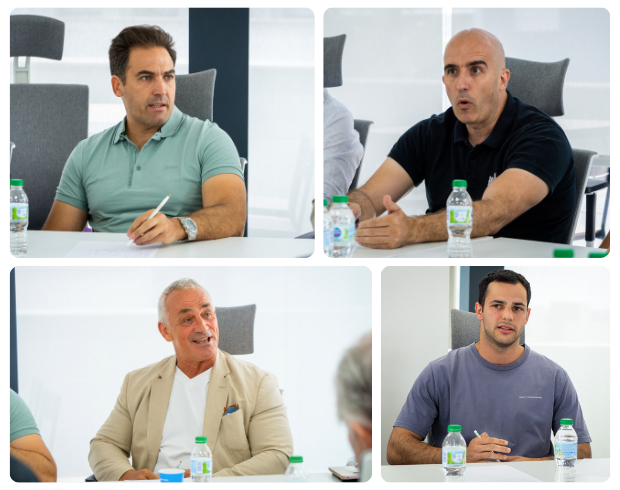 Photo caption: From left to right and top to bottom: Juan Francisco Ramírez,
director of expansion at Énergie Fitness; Alberto Campo, director of business development at Brooklyn Fitboxing; Rod Hill, founder and CEO of Fit Brands International (Énergie Fitness / Zenergie Body & Soul); and Sergio García,
founding partner of Wellzone.
Photo caption: From left to right and top to bottom: Juan Francisco Ramírez,
director of expansion at Énergie Fitness; Alberto Campo, director of business development at Brooklyn Fitboxing; Rod Hill, founder and CEO of Fit Brands International (Énergie Fitness / Zenergie Body & Soul); and Sergio García,
founding partner of Wellzone.
The formula for combining training and preventive medicine
Juan Francisco Ramírez, expansion director of Énergie Fitness, highlighted the disruptive nature of its offering. With eight centers and a ninth on the way, its flagship in Sant Cugat combines high-intensity training with mindfulness studies in facilities measuring over 1,000 m². "Longevity is an unstoppable trend, and our offering unites health, technology, and a premium experience," he emphasized. Energie Fitness is part of the Fit Brands International group (Énergie Fitness / Zenergie Body & Soul), which was represented at the event by its founder and CEO, Rod Hill, who highlighted their focus on three key aspects: well-being, longevity, and preventive medicine.
The scalability of the model as a success of internationalization
From Brooklyn Fitboxing, Alberto Campo, director of business development, noted that the chain is already present in nine countries, with 260 operating centers and its sights set on reaching 300. "We have achieved a scalable experience, completely consistent in all markets," he explained. To achieve this, the same workouts are sent from headquarters, with the goal of replicating them in all its centers, regardless of the country. He also highlighted the launch of its new SMART format, designed for populations under 100,000 inhabitants: "We want to democratize access to fitboxing without losing the essence of the model."
Also participating was Sergio García, founding partner of Wellzone, a recently created boutique center exclusively for women. He explained that his goal was to listen and learn from industry leaders to better define their future positioning. "We are in an initial phase, but we believe that combining personalized and group training can give us a unique position," he explained.
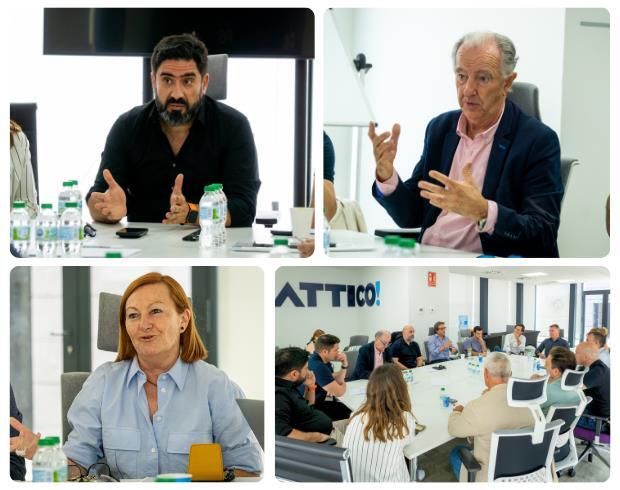 Caption: From left to right and top to bottom:
Raúl Calleja, director of FIS; Eduardo Abadía, executive director
of the AEF; Milagros Díaz, president of FAGDE; and a group photo
during the event.
Caption: From left to right and top to bottom:
Raúl Calleja, director of FIS; Eduardo Abadía, executive director
of the AEF; Milagros Díaz, president of FAGDE; and a group photo
during the event.
FIS, the epicenter of the franchise ecosystem
The meeting featured a presentation by Raúl Calleja, director of FIS, who emphasized that "it's not about holding more events, but rather creating real reasons to attend them." He added that "FIS is a human-to-human space, designed to connect expanding brands with key players in the franchise ecosystem."
For his part, Eduardo Abadía, executive director of the AEF, described the event as "a masterclass in the sector." "I can't help a franchisor brand if I don't know it well. That's why these types of sessions are so necessary," he stated. She also spoke about the Cities and Franchises forum, an initiative that seeks to select locations interested in strengthening their business network through the franchise model. For Abadía, knowing the cities where a brand will be established is essential to making good decisions.
The president of FAGDE, Milagros Díaz, also joined the event, which she considered very informative and was delighted to see that this sector is so alive and active. She also wanted to express her gratitude for the role of the franchise system in promoting sports: "We owe you a very important part of the sports promotion in this country."
As a result of the event, FIS will launch an exclusive sector dossier with the main findings, success stories, and shared value propositions, from the integration of fitness and health to training, including proximity not only in large cities, as well as the emergence of the boutique model based on personalized service.






